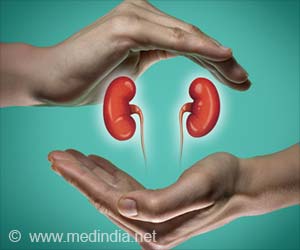The levels of Trimethylamine N-oxide from gut bacteria in Blood test may quickly predict the risk of death and heart problems, reveals study.
Highlights
- Heart disease is one of the leading cause of death in the world.
- Measuring the trimethylamine N-oxide (TMAO) level in the blood produced by the gut bacteria may help to predict the risk of death and heart problems in patients.
- Higher the level of trimethylamine N-oxide (TMAO) level in the blood higher is the risk of death and heart problems.
The research study was published in the journal European Heart Journal.
The study findings suggested patients to reduce TMAO levels by two ways:
- Change in the diet
- Designing new drugs to prevent TMAO production.
Acute Coronary Syndrome includes a range of heart problems like angina, myocardial infarction and heart attacks.
The research study was conducted on 530 patients aged over 18, who were arriving in the emergency department of the Cleveland Clinic with chest pains and 1683 patients who had coronary angiography within five days after being admitted to one of four University hospitals in Switzerland (Zurich, Bern, Lausanne and Geneva). The research team in Switzerland and the USA were found to examine the TMAO levels in the blood.
The outcomes such as death due to stroke, heart or blood vessel problems, or death due to other cause of the patients were monitored for several years.
Adjusting the risk factors such as age, smoking, diabetes, cholesterol levels and blood pressure and comparing to the patients with low TMAO levels, the levels in the top 25% were nearly six times more likely to die or suffer from heart attack or stroke or may require revascularisation at 30 days and six months and nearly twice likely to die in the seven years.
There was a six-fold higher risk of adverse effects in the heart even in patients who did not appear to have elevated levels of troponin T when they first arrived at hospital and those in the top 25% TMAO levels.
Higher TMAO levels in patients had 1.5 times higher risk for heart diseases after one year, even after adjusting for other risk factors.
TMAO levels are associated with short and long-term risks of death and other cardiovascular problems for patients coming to hospital emergency departments with chest pain and heart problems.
Rapid TMAO testing may help to identify higher risk patients, and rescue heart muscles that are under stress.
The research team also said that TMAO levels were found to suggest new ways to reduce risk of heart problems and death.
Dr Slayman Obeid, junior consultant at the University Heart Centre, Zurich, said, "TMAO offers a better understanding of the clinical impact that our daily diet has on the cardiovascular system, specifically in patients presenting with acute coronary syndrome. This opens the way for new preventive measures, such as encouraging patients to switch from a diet rich in red meat, dairy products and eggs to a Mediterranean diet rich in green leafy vegetables and fiber. In addition, drugs could be developed that target the process by which bacteria in the gut interact with food to make TMAO. So, in the future, interventions that reduce TMAO levels may help to reduce the risk of clots and blocked arteries."
The patients with TMAO levels above 2.5 micrometers were at a higher risk for heart problems. After adjusting the risk factors and medical conditions, increased risk begin to start at 4.28 micrometer in the United States and 4.85 micrometers in the Swiss.
TMAO testing is quick, inexpensive ($50-55) and easy to perform in the U.S. hospitals.
Facts on Heart Diseases
- Heart disease is the number one cause of death in the United States.
- One in four deaths occur due to heart disease.
- Coronary Heart Disease is the most common type of heart disease.
- High blood pressure is a major risk factor for heart disease.
Source-Medindia
















